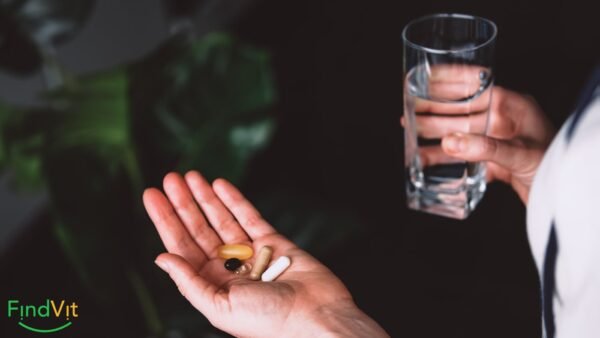In today's fast-paced world, people often forget one of the most important aspects of health - the importance of rest. Studies show that as many as 7 out of 10 people feel constantly tired and sleep deprived, regardless of how many hours they spend sleeping.1
Rest is much more than just sleep or physical inactivity. It is a complex process that includes both physical and mental recovery, which is necessary for the human body to function optimally. Scientists emphasize that a proper rest regimen can improve memory, strengthen the immune system and even help prevent serious health problems.
In this article, we will examine science-based facts about the importance of rest, discuss different forms of rest and their effects on the body, and provide practical advice on how to ensure quality rest in everyday life.
A Scientific Approach to the Importance of Rest
Scientific research reveals that at least 8-10 days of uninterrupted rest are required to achieve optimal rest. This fact justifies the need for longer rest for the human body.
Interesting facts about rest
Research conducted in Lithuania shows interesting trends regarding leisure habits:
- 41% Lithuanians rest most productively during active holidays
- 28% prefers more luxurious relaxation in spa centers
- Even 91% respondents are able to completely "disconnect" from work during vacations
The influence of rest on brain activity
Scientists emphasize that quality rest During sleep, important biochemical and bioelectrical processes occur in the brain. Studies show that regular rest improves cognitive performance and enhances neuroplasticity, the brain's ability to create new neuronal connections.
Hormone balance and rest
Rest directly affects the hormonal balance in the body. Lack of sleep and rest can cause hormonal imbalance, which manifests itself in various symptoms: mood swings, sleep disorders and lack of energy. Interestingly, even 40-degree hot bath therapy 1-2 times a week can improve hormonal balance and overall emotional state.
Strengthening the immune system
Quality rest is one of the most important factors in strengthening the immune system. During sleep, the body releases specific chemicals that are essential for fighting infections and inflammation. Studies confirm that insufficient rest directly reduces the amount of these substances in the body, which makes people more likely to get colds and viral illnesses.

Differences Between Physical and Mental Rest
Physical and mental rest, although often perceived as one phenomenon, are actually two different processes that require different recovery methods and time.
Muscle recovery mechanisms
Muscle recovery is a complex biological process. Studies show that a 3°C increase in muscle temperature increases the rate of muscle relaxation by about 22%. After intense exercise, several important processes occur in the muscles:
- Regulation of the rate of ATP hydrolysis and resynthesis
- Metabolite removal
- Muscle fiber recovery
It is important to mentionthat after hard physical work, it is recommended to perform stretching exercises that reduce muscle tone and help relax the muscles.
Signs of cognitive fatigue
Mental fatigue manifests itself with specific symptoms that are important to recognize:
- Decreased concentration
- Lack of motivation
- Impaired cognitive function
Research shows that mental fatigue is often associated with symptoms of depression and anxiety, which can have long-term effects on a person's productivity and overall well-being.
Benefits of different forms of recreation
Active recreation is more than just physical activity – it is a variety of forms of movement that help restore energy and improve overall well-being. Physical activity stimulates the release of endorphins, which naturally improve mood and reduce stress.
Regular physical activity has a positive effect on:
- Cardiovascular system
- Respiratory system
- Endocrine system
- Musculoskeletal system
It is important to note that even a short daily physical activity reduces the likelihood of gaining unnecessary excess weight and improves metabolism. Meanwhile, mental relaxation, such as meditation, can have a similar effect on vitality and well-being as a day spent on vacation.

The Role of Sleep in the Recovery Process
Sleep is one of the essential processes of the body's recovery, during which complex biochemical and physiological changes occur. Studies show that about 30-40% people do not get enough sleep, which raises serious public health concerns.
The meaning of sleep phases
The sleep cycle consists of two main phases: NREM (non-rapid eye movement) and REM (rapid eye movement) sleep. Each sleep cycle lasts about 90-110 minutes, during which the body goes through different stages of recovery. NREM phases During this time, the body's physical recovery takes place, and In the REM phase The brain processes the day's impressions and strengthens memory.
Quality sleep and health
Quality sleep is directly related to strengthening the immune system. Studies have shown that people who sleep less than 5 hours a night are 4.5 times more likely to catch a cold. During sleep, important physiological changes occur in the body:
- Tissue growth and repair
- Strengthening the immune system
- Hormone regulation
Consequences of sleep deprivation
Chronic sleep deprivation has serious health consequences. Studies show that people who sleep less than 6 hours a night have a 30% higher risk of obesity. Lack of sleep also:
- Increases the risk of heart disease 13%
- Increases the risk of type 2 diabetes 48% in those who sleep less than 5 hours
- Slows reaction time and decision-making abilities
It is important to mention, that sleep deprivation not only affects physical health, but also has a significant impact on psychological well-being. Studies confirm that people who do not get enough sleep are more likely to experience depression and anxiety, especially those who sleep less than 6 hours a day.

The Relationship Between Stress and Rest
The human body is constantly balancing between states of stress and rest, which are closely related to each other. Scientists emphasize that the balance of these states is essential for health and well-being.
Effects of stress on the body
Prolonged stress causes significant physiological changes in the body. Research shows that the release of cortisol and other hormones during stress can lead to a variety of negative symptoms:
- High blood pressure and heart rhythm disorders
- Digestive system problems
- Weakening of the immune system
- Sleep disorders
- Constant fatigue
Scientists have found that stress causes 70% people to experience migraine headaches. Extremely dangerous is chronic stress that can lead to serious health conditions, including heart disease and diabetes.
The impact of rest on stress reduction
Research confirms a clear link between physical activity and improved mental health. Regular rest and physical activity helps:
- Reduce cortisol levels in the blood
- Improve sleep quality
- Strengthen the immune system
It is important to mentionthat physically active people are less likely to complain of bad mood, anxiety and depression.
Biochemistry of recovery
The recovery process involves complex biochemical mechanisms. Scientists emphasize that during rest, plasma turnover increases due to the effects of endorphins, norepinephrine, and serotonin.
During stress, the body releases chemicals designed to activate the body – the heart rate increases and blood pressure rises. However, quality rest During this time, these processes normalize, and the body begins to produce "happiness hormones" - endorphins and oxytocin.
Research shows that during sleep, the brain processes and organizes the day's events, emotions, and memories, helping to reduce emotional stress and increase psychological resilience. This process is particularly important for regulating the stress hormone cortisol.

The Consequences of Prolonged Lack of Rest
Constant lack of rest causes serious consequences for the human body, which can have a long-term impact on overall health. Studies conducted in Lithuania show that due to improper rest regimen and physical inactivity, diseases of the circulatory system account for the largest share of the population's mortality structure - as much as 54.51% of all deaths.
Physical health problems
Long-term lack of rest directly affects a person's physical health. Studies show that in Lithuania, almost twice as many people die from cardiovascular diseases than on average in EU countries. Major physical ailmentscaused by lack of rest:
- Increased risk of cardiovascular disease
- Development of type 2 diabetes
- Increased likelihood of being overweight
- Weakening of the immune system
- Digestive system disorders
Statistics show that in Lithuania, 35.71% of men and 32.21% of women are overweight, and the proportion of obese people reaches 161%.
Psychological symptoms
Lack of rest causes not only physical but also psychological disorders. Studies show that students most often suffer from fatigue (61.2%), nervous tension (60.1%), and sleep disorders (35.3%). Long-term lack of rest The consequences for the psyche are:
Reduced work capacity and avoidance of work, dulled attention, irritability, and impaired coordination of movements. Chronic fatigue can cause lethargy, general weakness, and frequent headaches.
Prevention strategies
To avoid the consequences of long-term lack of rest, it is important to apply effective prevention strategies. Scientists recommend:
Regular physical activity, which, according to the recommendations of the World Health Organization, is associated with a better quality of life due to better physical and mental well-being. Also important for the prevention of burnout are favorite work, recreation in nature, sports and relaxation at cultural events.
Studies confirm that proper rest and good sleep usually quickly relieve fatigue and restore working capacity. However, if you are overworked, regular sleep and rest do not help you regain strength - in this case, it is necessary to fundamentally change your work and rest regimen.

Nutrients that help you rest well
Proper nutrition plays a crucial role in ensuring quality rest and sleep. Nutritionists emphasize that it is best to eat dinner at least three hours before bedtime, as improperly selected food or food eaten too late burdens the body.
Basic foods, helping to ensure quality rest:
- Red fish – vitamin D and Omega-3 source of fatty acids
- Whole grain carbohydrates – buckwheat, quinoa, brown rice
- Turkey and cottage cheese – sources of tryptophan
- Bananas – magnesium and potassium source
- Cherries are a natural source of melatonin
Studies show that tryptophan, found in turkey and whole-grain cottage cheese, is a precursor to melatonin, a sleep-regulating hormone. Consuming these foods along with a small amount of low-glycemic carbohydrates can help increase melatonin production and improve sleep quality.
Benefits of herbs for relaxation: Natural sedatives derived from herbs can be a great alternative to synthetic preparations. The most popular herbs that help you relax:
- Chamomile – traditionally used to calm the nerves
- Lavender – reduces anxiety
- Melissa – promotes relaxation
- Valerian root – helps you fall asleep more easily
Cinnamon tea can also be beneficial for relaxation, as it is rich in antioxidants that fight oxidative stress and reduce inflammation. Cinnamon can also help regulate blood sugar levels, which is important for quality sleep.
The importance of nutrients: Nutrients are essential for the body's cells to obtain energy and repair themselves. They play an important role in:
- Provides the body with energy
- Helps tissues grow and repair
- Regulates metabolism
- Strengthens the immune system
Nutritionist Vaida Kurpienė emphasizes that improperly selected food can disrupt sleep quality and cause a person to feel tired and restless in the morning. Studies show that those who regularly eat rice sleep better than those who consume more bread or pasta.
A healthy diet not only supports physical health, but also emotional health. By strengthening their nervous system with the right vitamins and minerals, people can noticeably improve their well-being and maintain composure even in difficult circumstances.

FAQ (Frequently Asked Questions) – "The Importance of Rest"
Why is rest important for health?
Rest allows the body and mind to recover, reduces stress, improves immune system function, and helps prevent long-term health problems such as heart disease or depression.
How do you determine if you are getting enough rest?
If you feel tired, have trouble concentrating, or have mood swings, it could be a sign that you're not getting enough quality rest. Listen to your body's signals.
How many hours of rest does an adult need?
Adults are recommended to sleep 7-9 hours per night, but quality rest during the day, such as short breaks during work, is also important.
What are the most effective ways to relax?
Rest doesn't have to mean just sleep. It can be meditation, time in nature, hobbies, or just relaxing without technology.
How does poor rest affect the body?
Insufficient rest can cause chronic fatigue, increase stress hormone levels, weaken immunity, and even reduce productivity.
Conclusions
Scientific research clearly shows that rest is not a luxury - it is a necessary condition for a quality life. A proper rest regimen, which includes quality sleep, a balanced diet and regular physical activity, helps prevent many health problems.
The human body functions as a complex system, in which rest plays a crucial role. Lack of sleep, constant stress, and poor nutrition can have serious consequences for both physical and mental health. However, the good news is that even small changes in your daily routine can significantly improve the quality of rest.
It is important to remember that each person is individual, so it is worth experimenting and finding the most suitable forms of rest. Regular physical activity, a balanced diet and sufficient sleep are three key elements that help ensure optimal body functioning and well-being.











